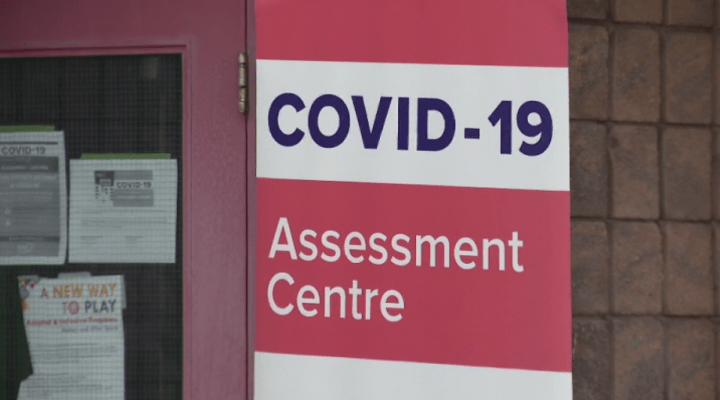Four more COVID-19-related deaths are being reported in Saskatchewan.

Health officials said two of the deaths were individuals in their 60s from the Regina and far north zones and the other individuals were in their 70s and from the south zone.
It raises the overall death total in the province to 59 since the start of the coronavirus pandemic.
Saskatchewan also broke the 10,000 case threshold on Sunday, with 415 new cases reported to bring the overall total to 10,139.
It’s the second-highest daily case count reported in the province. The highest single-day case count is 433 reported on Nov. 21.
The seven-day average of daily new cases is 272 — 22.4 new cases per 100,000 population.
Saskatoon had the highest number of daily new cases — 205 — but officials said the case numbers from the city reflect a correction from the previous day due to a data-related issue.
Regina reported 60 new cases and 39 cases were reported in the north-central zone.
Other zones reporting new cases area the far northwest (15), far northeast (18), northwest (26), northeast (10), central-west (five), central-east (10), southwest (six), south-central (12) and southeast (six). Three new cases have pending residence information.

Get weekly health news
Active cases rose to 4,550, with 135 people hospitalized. Health officials said 26 patients are in intensive care — 12 in Saskatoon, nine in Regina and five in the north-central zone.
The province reported 46 more recoveries, bringing total recoveries to 5,530.

Coronavirus breakdown
Of all cases reported to date in Saskatchewan, 4,244 are community contacts, 2,382 have no known exposures, 501 are travellers and 3,012 are under investigation by public health.
Here is a breakdown of total Saskatchewan cases by age:
- 2,131 people are 19 and under
- 3,565 people are 20 to 39
- 2,691 are 40 to 59
- 1,355 people are 60 to 79
- 392 people are 80 and over
Saskatchewan has completed 364,392 tests to date for the virus, up 3,846 from Saturday.
Questions about COVID-19? Here are some things you need to know:
Symptoms can include fever, cough and difficulty breathing — very similar to a cold or flu. Some people can develop a more severe illness. People most at risk of this include older adults and people with severe chronic medical conditions like heart, lung or kidney disease. If you develop symptoms, contact public health authorities.
To prevent the virus from spreading, experts recommend frequent handwashing and coughing into your sleeve. They also recommend minimizing contact with others, staying home as much as possible and maintaining a distance of two metres from other people if you go out. In situations where you can’t keep a safe distance from others, public health officials recommend the use of a non-medical face mask or covering to prevent spreading the respiratory droplets that can carry the virus. In some provinces and municipalities across the country, masks or face coverings are now mandatory in indoor public spaces.
For full COVID-19 coverage from Global News, click here.



Comments